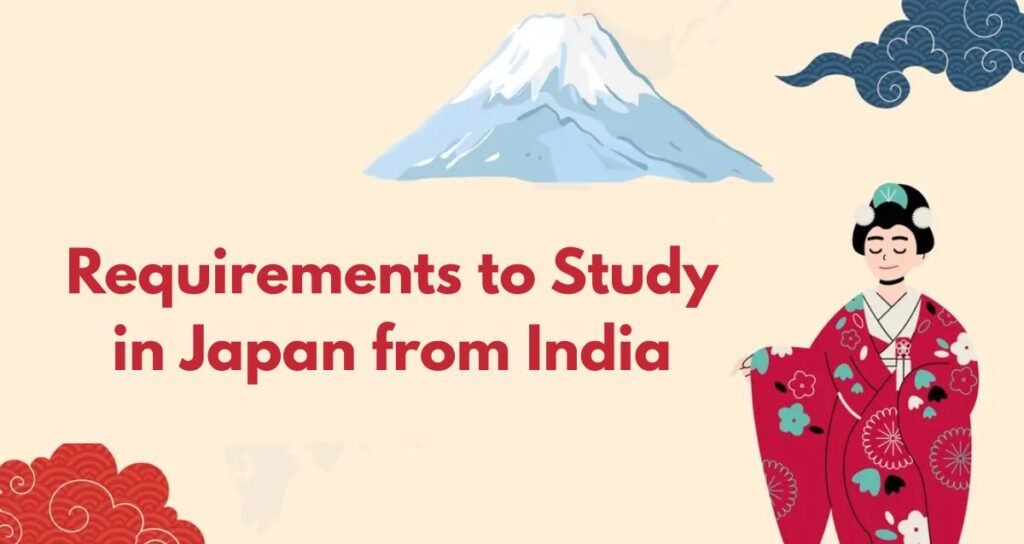Japan has become one of the most sought-after destinations for international students, offering a unique combination of world-class education, cutting-edge research opportunities, and rich cultural experiences. Its universities consistently rank among the top institutions globally, attracting students from India and around the world who are seeking high-quality academic programs and exposure to innovative learning environments. For Indian students, understanding the cost of studying in Japan is essential to plan their education journey effectively and avoid unexpected financial challenges. Tuition fees vary depending on the type of university, program, and level of study, with public universities generally offering more affordable options compared to private institutions. In addition to tuition, students must consider living expenses, including accommodation, food, transportation, and personal needs, which can vary significantly between major cities and smaller towns. By budgeting carefully, exploring scholarships, and considering part-time work opportunities, Indian students can make studying in Japan both financially manageable and academically rewarding. Travel Tips & Language Guide
Table of Contents
Cost of Studying in Japan for Tuition Fees
Tuition fees in Japan vary depending on the type of university, level of study, and program. Public universities typically charge ¥500,000–¥1,000,000 (~₹3.5–7 lakh) per year for undergraduate courses, offering affordable options for international students. Private universities are more expensive, ranging from ¥1,000,000–¥2,500,000 (~₹7–18 lakh) annually, with specialized programs such as medicine, dentistry, or engineering often incurring higher fees due to additional facilities and resources. Shopping in Japan

Public Universities
Public Universities in Japan are renowned for providing high-quality education, excellent research facilities, and strong academic programs while maintaining relatively lower tuition fees compared to private institutions. This makes them a popular choice for international students, including those from India, who are looking for affordable yet prestigious education opportunities. Undergraduate programs at public universities generally cost between ¥500,000 and ¥1,000,000 per year (~₹3.5–7 lakh), offering a cost-effective option without compromising on the quality of education. Graduate programs typically fall within a similar fee range, making advanced studies accessible as well. Many public universities also provide support services for international students, including orientation programs, language courses, and counseling, helping them adapt to campus life and Japanese culture. By choosing public universities, students can enjoy world-class education at reasonable costs.
- Undergraduate programs: ¥500,000–¥1,000,000 per year (~₹3.5–7 lakh)
- Graduate programs: Similar range (~₹3.5–7 lakh/year)
Private Universities
Private Universities in Japan are known for offering a wide range of programs, modern facilities, and strong industry connections, but they generally come with higher tuition fees compared to public institutions. Annual tuition at private universities typically ranges from ¥1,000,000 to ¥2,500,000 (~₹7–18 lakh), depending on the course and reputation of the university. Specialized programs such as medicine, dentistry, and engineering often require additional laboratory facilities, equipment, and resources, which can increase the overall cost of education. Despite the higher fees, private universities frequently provide excellent support services, career guidance, and international exchange opportunities. For students seeking diverse programs and state-of-the-art facilities, private universities offer valuable academic and professional advantages, though budgeting carefully is essential to manage the higher financial requirements.
- Tuition: ¥1,000,000–¥2,500,000 per year (~₹7–18 lakh)
- Specialized programs (medicine, dentistry, engineering) may cost more
Junior Colleges
Junior Colleges in Japan, especially private institutions, provide a practical and affordable pathway for international students seeking focused, short-term academic programs. Tuition fees at private junior colleges are generally around ¥960,000 per year (~₹6.8 lakh), making them a cost-effective option compared to full-fledged universities. These colleges typically offer two- to three-year programs that concentrate on specific fields, allowing students to gain specialized skills quickly and efficiently. Junior colleges also provide support services for international students, including language courses, career guidance, and cultural integration activities. For students who wish to pursue a shorter, more affordable course of study without compromising quality, private junior colleges in Japan present a compelling option.
- Private junior colleges: ~¥960,000 per year (~₹6.8 lakh)
Scholarships such as MEXT, JASSO, and university-specific grants can significantly reduce tuition costs for international students.
Living Expenses in Japan
Living expenses in Japan vary significantly based on the city, type of accommodation, and lifestyle of the student. Major metropolitan areas such as Tokyo, Osaka, and Kyoto tend to be more expensive, with higher costs for rent, food, transportation, and daily necessities. In contrast, smaller towns, regional cities, or university dormitories provide more budget-friendly options. Students can further reduce costs by sharing apartments, cooking at home, using student transportation passes, and taking advantage of discounts for cultural and recreational activities. Outdoor Adventures in Japan

Average Monthly Costs:
Average Monthly Costs in Japan for students can vary widely depending on the city, type of accommodation, and individual lifestyle choices. On average, monthly expenses typically range from ¥70,000 to ¥150,000 (~₹50,000–1,10,000). These costs cover essential items such as rent or dormitory fees, groceries and meals, transportation, utilities like electricity and water, study materials, and personal expenses. Living in major metropolitan cities like Tokyo, Osaka, or Kyoto tends to be more expensive due to higher rents and daily living costs, while smaller towns or university dormitories offer more affordable options. Careful budgeting and cost-saving strategies can help students manage their monthly expenses effectively.
- Major cities (Tokyo, Osaka, Kyoto): ¥100,000–¥150,000 (~₹75,000–1,10,000)
- Smaller cities or regional towns: ¥70,000–¥100,000 (~₹50,000–75,000)
Key Expenses Include:
Key Expenses Include: Rent or dormitory fees, groceries and meals, transportation costs, utilities such as electricity and water, study materials and books, health insurance, personal expenses, and occasional cultural or recreational activities while living in Japan.
- Accommodation (largest cost)
- Food and groceries
- Transportation (train, bus, etc.)
- Utilities and personal expenses
- Health insurance (~₹10,000–20,000 annually)
- Study materials, books, and occasional travel
Students can reduce costs by choosing university dormitories, shared apartments, cooking at home, and using student discounts.
Additional Costs
In addition to tuition and living expenses, students should budget for books, study materials, health insurance, transportation, visa fees, personal expenses, and occasional cultural or recreational activities.
- Application Fees: ₹2,500–₹17,000 (30–200 EUR)
- Language Tests: JLPT – ₹3,400 (40 EUR), EJU – ₹5,900–10,500 (70–124 EUR)
- Visa Fees and Processing Costs
- Cultural activities and personal expenses
Careful budgeting ensures a financially manageable experience without stress.
Scholarships and Financial Aid
Several scholarships make studying in Japan accessible and affordable for Indian students. Notable options include the MEXT Scholarship, JASSO Scholarship, university-specific grants, and private foundation funding, which can cover tuition, living expenses, travel, and other educational costs. Japan Festivals 2025

- MEXT Scholarship: Covers tuition, living expenses, and travel
- JASSO Scholarship: Provides financial assistance for daily expenses and tuition
- University-specific Scholarships: Grants for meritorious international students
- Private Organization Grants: Funding opportunities from foundations
These scholarships can cover full or partial costs, allowing students to focus on academics and cultural experiences.
Read More: How to Apply for Japan Visa for Japanese Students from India
Cheapest Universities in Japan for International Students
For budget-conscious students, public universities in Japan provide excellent education at more affordable tuition rates compared to private institutions. These universities maintain high academic standards, offer strong research opportunities, and support international students with services like language courses, counseling, and orientation programs.
- Kyushu University: ₹2.5–3.5 lakh/year
- Hokkaido University: ₹2.5–3.5 lakh/year
- Osaka University: ₹3–4 lakh/year
- Tohoku University: Competitive tuition with quality education
Choosing universities in smaller cities further reduces living expenses while maintaining excellent academic standards.
Requirements to Study in Japan from India
Indian students applying for a Japanese student visa need a valid passport, completed application form, recent photographs, admission letter, academic transcripts, proof of funds, language proficiency certificates, and sometimes health and recommendation documents.

- Educational Qualification: 12th pass for undergraduates, bachelor’s degree for postgraduates
- Language Proficiency: JLPT (Japanese) or TOEFL/IELTS (English)
- Financial Proof: Bank balance of ₹10–15 lakh to cover tuition and living costs
- Visa Documents: Passport, application form, photos, admission letter, academic transcripts, statement of purpose, recommendation letters, and health certificate
Accurate documentation ensures smooth visa processing.
For detailed guidance, check our updated article: How to Apply for a Japanese Student Visa from India Japanese Cuisine
FAQs
1. How much does it cost of studying in Japan?
The cost of studying in Japan varies based on the university type, course, and location, but it generally ranges from ₹7 lakh to ₹20 lakh per year for international students. Tuition fees form the largest part of this expense. Public universities in Japan are more affordable, with annual fees usually between ₹3.5 lakh and ₹7 lakh for undergraduate programs. Private universities, on the other hand, may charge anywhere from ₹7 lakh to ₹18 lakh per year, depending on the institution and program. Courses such as engineering, medicine, and technology often have higher tuition fees due to specialized facilities and lab requirements.
Living expenses also play a crucial role in the total cost of studying in Japan. Students typically spend around ₹3 lakh to ₹7 lakh per year on accommodation, food, transportation, utilities, and daily needs. Major cities like Tokyo and Osaka are more expensive, while smaller cities and university towns offer more budget-friendly living options. With careful financial planning, scholarships, and part-time job opportunities, studying in Japan can be both affordable and rewarding.
2. Is Japan costly for Indians?
Yes, Japan is relatively expensive for Indian students, especially compared to living costs in India. Housing, food, transportation, and daily necessities tend to be pricier in Japanese cities. For example, renting a one-bedroom apartment in Tokyo can easily cost over ₹60,000–70,000 per month, not including utilities and groceries.
However, the cost is not prohibitive. International students can reduce expenses through scholarships, part-time work, and smart budgeting. Universities often provide dormitories or shared housing at lower costs. Students can also benefit from local student discounts, inexpensive food options like university cafeterias, and using commuter passes for transportation. By carefully planning their finances, Indian students can live comfortably in Japan while keeping overall costs within a manageable range.
3. How much is MBBS in Japan?
Pursuing an MBBS degree in Japan is an attractive option for Indian students seeking high-quality medical education and exposure to advanced healthcare facilities. The total cost for the full program usually ranges between ₹20 lakh and ₹40 lakh, depending on the university and duration of study. This estimate includes tuition fees, laboratory and medical practical charges, books, and living expenses.
Some universities offer scholarships or financial aid for international medical students, which can significantly reduce costs. Indian students planning to pursue MBBS in Japan should carefully check the fees of each university, understand additional expenses like clinical training or hospital rotations, and explore scholarship options to minimize the financial burden.
4. How much money should I have to study in Japan?
For the purpose of a student visa, Indian applicants must demonstrate a minimum of ₹10–15 lakh in personal funds. This amount ensures that students can cover tuition, living expenses, health insurance, study materials, and other daily costs without financial strain.
Maintaining sufficient funds not only strengthens the visa application but also ensures a smooth transition to life in Japan. Some universities may provide estimated budgets based on the city and program, so it is advisable to review these carefully. Having additional savings for unforeseen expenses or cultural activities is highly recommended for a comfortable student experience.
5. Can I study in Japan for free?
Yes, it is possible to study in Japan without paying tuition through scholarships and grants. Key opportunities include:
- MEXT Scholarship: Offered by the Japanese government, this prestigious scholarship covers tuition fees, monthly living expenses, and airfare for international students pursuing undergraduate, postgraduate, or research programs.
- JASSO Scholarship: Administered by the Japan Student Services Organization, it provides financial assistance to help with living costs and tuition.
- University-specific Grants: Many universities offer partial or full tuition waivers based on academic merit or financial need.
Securing scholarships can make studying in Japan highly affordable and even free for high-achieving students. Applicants should carefully research eligibility requirements, prepare strong applications, and meet all deadlines to maximize their chances of receiving funding.
6. Do I need to know Japanese to study?
While learning Japanese is not mandatory for all programs, it is highly recommended. Many universities offer English-taught programs, particularly at the master’s and doctoral levels, but having basic Japanese skills is beneficial for day-to-day life, cultural integration, and part-time employment.
Knowing Japanese helps students navigate public transportation, shop for groceries, interact with locals, and participate in social and cultural events. Universities also provide Japanese language courses for international students, which improve academic engagement and enhance career prospects in Japan after graduation.
7. Can I work while studying in Japan?
Yes, international students with a valid student visa are allowed to work part-time. During academic terms, students can work up to 28 hours per week, and during vacations, full-time work is permitted. Part-time jobs not only help cover living expenses but also provide valuable exposure to Japanese work culture.
Popular opportunities include teaching English, working in cafes, retail stores, restaurants, or assisting in research labs. It is mandatory to obtain permission from the immigration office before starting any work, ensuring compliance with Japanese regulations.
8. How long is a typical undergraduate program?
The cost of studying in Japan is closely influenced by the duration of the academic program and the level of study. Most undergraduate programs in Japan last four years, covering general education subjects, core courses, and electives. However, professional programs such as medicine, dentistry, and veterinary science can extend up to six years, which increases the overall cost due to longer tuition and living expenses.
At the postgraduate level, the cost of studying in Japan varies based on program length. Master’s degrees usually take 1 to 2 years, while doctoral programs typically require 3 to 5 years, depending on the research field and university requirements. Longer study durations mean higher tuition fees and living costs over time. Some universities also offer dual-degree or part-time research programs, which may impact the total cost of studying in Japan depending on enrollment structure and study duration.
9. How early should I apply?
It is strongly recommended to begin the application process at least one year before your intended start date. Early preparation provides enough time to gather essential documents, apply for scholarships, take required language tests (JLPT or TOEFL/IELTS), and complete entrance exams if needed.
Starting early increases your chances of acceptance at competitive universities, ensures that visa and scholarship deadlines are met, and allows for proper financial and logistical planning. A well-prepared application also demonstrates seriousness and commitment to both universities and scholarship committees.
10. What are the popular scholarships for Indian students in Japan?
Several scholarships make studying in Japan affordable and accessible for Indian students:
- MEXT Scholarship: Funded by the Japanese government, it offers full coverage for tuition, monthly living expenses, and airfare for undergraduate, postgraduate, and research programs.
- JASSO Scholarship: Administered by the Japan Student Services Organization, this scholarship provides financial support to help with tuition and daily expenses.
- University-specific Scholarships: Many Japanese universities offer merit-based or need-based scholarships specifically for international students.
- Private Foundation Grants: Multiple private organizations and foundations in Japan provide scholarships or grants for research, cultural exchange, or academic excellence.
Indian students should research eligibility criteria, deadlines, and required documents to maximize their chances of receiving financial aid. Applying early and maintaining strong academic performance improves scholarship opportunities.
Conclusion
Studying in Japan provides Indian students with access to world-class education, innovative research opportunities, and a rich cultural experience. The overall cost of studying in Japan typically ranges from ₹7 lakh to ₹20 lakh per year, depending on the type of university, program, city of residence, and individual lifestyle choices. Public universities generally offer more affordable tuition compared to private institutions, while metropolitan cities like Tokyo and Osaka tend to have higher living expenses. Scholarships such as MEXT and JASSO, along with part-time work options and smart budgeting, can significantly reduce costs. By planning carefully, applying early, and selecting cost-effective universities, Indian students can make studying in Japan both achievable and highly rewarding, gaining valuable academic and cultural experiences.For detailed visa guidance, scholarship opportunities, and Japanese language preparation, contact TLS – The Japanese Language School at +91 8700956038 or email tls@teamlanguages.com. Start your journey to study in Japan today!

